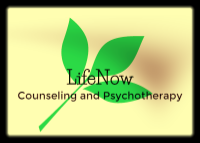“****Offering in-person and telehealth appointments****
Michelle is a Licensed Professional Counselor and holds a Masters in Science in Mental Health Counseling (CACREP accredited), a Bachelor’s in Arts in Psychology, is a Clinical Yoga Teacher and has formal training in conflict mediation and resolution. She has experience working trauma, depression, anxiety, grief and loss, relationship difficulties, and ADHD.
Michelle’s theoretical orientation comes from and Integrative therapeutic stance which includes: Trauma informed and strength based approach, Cognitive Behavioral Therapy, Mindfulness, Somatic Therapy, Interpersonal Therapy, Psychodynamic Therapy, Acceptance Therapy, Clinical Yoga, Brainspotting and Eye Movement Desensitization and Reprocessing (EMDR).
During your first visit you will be asked questions about why you sought therapy, your health, past history, and current symptoms.
Understand that therapy is not a quick fix, but a process. It most likely took you a while to get where you are now, so it may take awhile to get to where you want to be. Prepare to be open in answering questions and describing your feelings of what is going on. Ultimately, the goal is to take what you learn in therapy and apply it back into your life.
The counseling process helps people get unstuck by the development of insight and increased self-awareness to behaviors that are not helpful. You gain a better understanding of your behaviors and the related issues, feelings and events that motivate them. Just know, there is no wrong time to begin change!
Stop ruminating on the past or worrying about the future. Learn to live life where you are now, in this moment. Develop methods of managing anger, depression and unhealthy patterns; break old behaviors and develop new ones. Learn skills for improving relationships and quality of life.
Her office is located in Wilsonville, directly off I-5, close to Tualatin, Sherwood, Oregon City, Canby, Newberg, and other nearby areas. Office hours are Monday-Thursday 9am - 5-pm, Friday 9 am - 2pm, and occasional weekends. For more information please call 503-970-9042 or send inquires to lifenow.com@gmail.com.”
What is counseling
Counseling is a team effort. During your first visit you will be asked a questions about why you sought therapy, your health, past history, and current symptoms.
Be prepared to answer questions and describe your feelings of what is going on. Being able to be open and honest is important to being able to provide you with the best possible care.
Also, you may have your own questions. The more that you understand the therapy process the more comfortable you'll be and the more productive your experience will be. Having questions prior to your first session is helpful.
Understand that therapy is not a quick fix, but a process. It most likely took you a while to get where you are at, so it make take awhile to get to where you want to go.
Your therapist may also assign homework, which can be an important part in your treatment and healing. You may also work on setting goals.
Counseling is an intensely personal process which can bring unpleasant memories or emotions to the surface. There are no guarantees that counseling will work for you. Often, clients may sometimes make improvements only to go backwards after a time. Progress may happen slowly. Counseling requires a very active effort on your part. In order to be most successful, you will have to work on things we discuss outside of sessions.
benefits of counseling
Because each person has different issues and goals for therapy, it will be different depending on the individual. You can expect to discuss the current events happening in your life, you personal history, and report on progress (new insights gained) from the therapy sessions. Therapy can be short-term, or long-term, depending on each person's specific needs. Either way, weekly sessions on a regular basis is most common. In order to achieve the best results, it's important that you take an active role as a participant. Ultimately, the goal is to take what you learn in therapy and apply it back into your life.
Gaining a better understanding of yourself and your personal goals and values.
Learn skills for improving your relationships and quality of life.
Find resolution to the issues or concerns that led you to seek therapy.
Learn new ways to cope with stress and anxiety.
Develop methods of managing anger, depression, and other emotional pressures.
Grow communications skills - learn how to listen to others, and have others listen to you.
Learn how to identify unhealthy patterns - breaking old behaviors and developing new ones.
Increase problem solving ability.
Improve self-esteem and self-confidence.
Develop mindfulness skills to assist with staying present in the here and now.
What about Medication VS PSYCHOTHERAPY?
It is well established that the long-term solution to mental and emotional problems and the pain they cause cannot be solved solely by medication. Instead of just treating the symptom, therapy addresses the cause of the distress and the behavior patterns that stop progress. You can best achieve sustainable growth and a greater sense of well-being with an integrative approach to wellness. Working with your medical doctor you can determine what's best for you, and in some cases a combination of medication and therapy is the right course of action.

